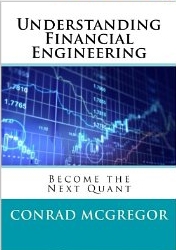Foreign Policy Magazine had a nice editorial article titled “Think Again: Asia’s Rise” that goes against the sentiment that Asia, and specifically China, will reign as the global juggernaut within a few decades. Among the insightful datapoints:
- The region produces 30% of global economic output, but per capita GDP is $5,800 vs $48,000 in the United States
- At current high growth rates it will take the average Asian 77 years to reach the income of the average American
- More than 20% of Asians will be elderly by 2050
- Pollution kills almost 400,000 people each year in China
- Innovation still reigns in the United States with over 92,000 patents in 2008 – twice the combined total of South Korea and Japan
- None of the top 10 universities is located in Asia and only the University of Tokyo ranks among the world’s top 20
- In the last 30 years only eight Asians, 7 of them Japanese, have won the Nobel Prize in the sciences
- A 2005 McKinsey Global Institute study reports that human resource managers in multinational companies consider only 10% of Chinese engineers and 25% of Indian engineers as “employable” compared with 81% of American engineers
- Only 10% of Japanese, 21% of South Koreans, and 27% of Indonesians surveyed by the Chicago Council on Global Affairs said they would be comfortable with China being the future leader of Asia
- 69% of Chinese, 75% of Indonesians, 76% of South Koreans, and 79% of Japanese said that U.S. influence in Asia had risen over the past decade
In a counterarticle by the same Foreign Policy Magazine, Robert Fogel makes the case for a $123,000,000,000,000 Chinese economy by 2040, or nearly three times the economic output of the entire globe in 2000.
Considering that the best economists have the most difficult time predicting the next quarter’s GDP for the world’s largest economy, I do not put much faith in long-term forecasts. If I were to throw a dart, I would say that Chinese economic growth will probably under-perform the optimists’ expectations. A country with such strong centralized government, state-run/family run large businesses, and an impoverished lower class will find it a difficult economic climb. A quick read of Hernando de Soto’s” The Mystery of Capital: Why Capitalism Triumphs in the West and Fails Everywhere Else” will give you some ammo to bet against the “sure thing”.



